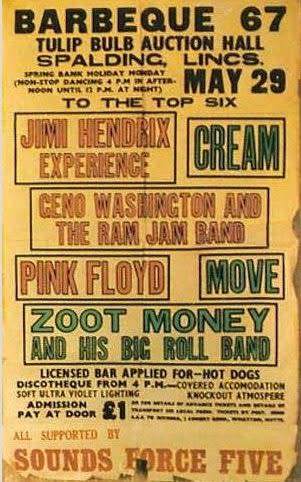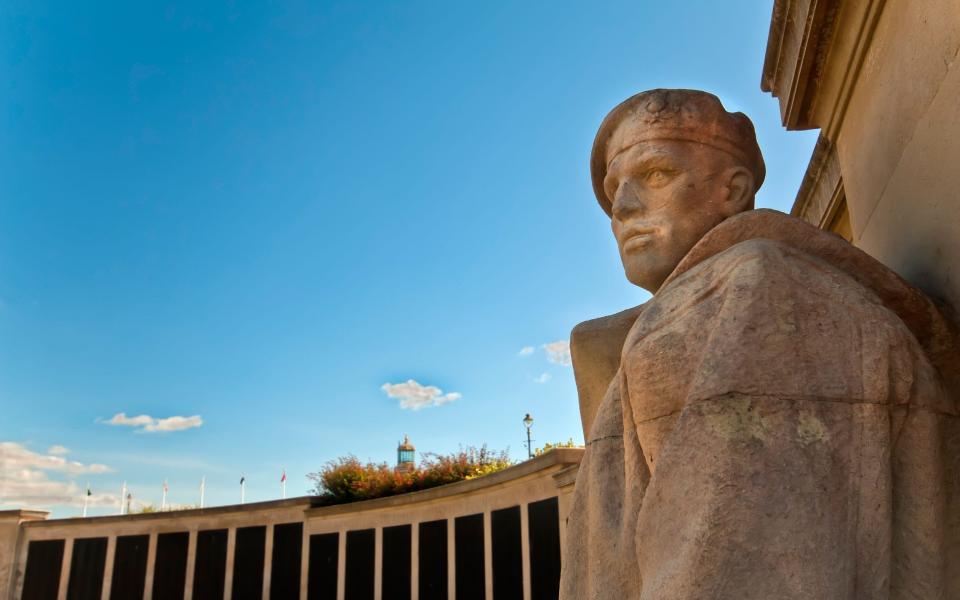Letters: The PM’s scare tactics won’t stop voters punishing the Tories for their treachery

- Oops!Something went wrong.Please try again later.
- Oops!Something went wrong.Please try again later.
- Oops!Something went wrong.Please try again later.
- Oops!Something went wrong.Please try again later.
- Oops!Something went wrong.Please try again later.
- Oops!Something went wrong.Please try again later.
SIR – Rishi Sunak’s attempts to scare former Tory voters away from backing Reform UK at this year’s general election – for fear of letting Labour into government through the back door – are a waste of his breath (“‘A vote for anyone other than Conservatives is a vote to put Starmer in power’”, report, January 7).
We’ve heard it all before.
We were taken for granted by David Cameron; taken for fools by Theresa May, who was out of her depth; and, although it pains me to say so, deceived and grossly let down by the underperforming, pantomime PM that was Boris Johnson – a failed messiah if ever there was one.
All betrayed our trust with breathtaking displays of arrogance and downright dishonesty, which have left lifelong Conservatives and Leavers like me feeling exploited and abused.
There’s no reason to believe that Mr Sunak’s promises will be any more trustworthy than those of his three immediate predecessors. His pleas will not stop us voting for Reform UK, whatever the short-term cost may be. The day of retribution is upon us.
It’s time for this soulless and gutless shell of a once-great Conservative Party to be either dismantled and reconstructed or replaced – while Labour spends the next five years demonstrating its innate and ruinous incompetence to yet another starry-eyed generation of soon-to-be disappointed and disillusioned youngsters.
Adrian Barrett
Haywards Heath, West Sussex
Last throes of the NHS
SIR – Thank you to Daniel Hannan for his contribution on the NHS (“To stop NHS doctors from going to Australia, bring Australian healthcare here”, Comment, January 7). I recently spent time in an A&E department, followed by an overnight stay. The outcome was that I require an “urgent” operation on my prostate, but will have to wait up to 64 weeks to have it. This does not seem very urgent to me.
The NHS’s budget in 2022-23 was a staggering £181.7 billion; £136 million is spent each year on medicines that can be bought from a pharmacy; 25 million working days are lost each year due to sickness; there are 7.7 million people waiting for an operation; NHS dentistry is virtually non-existent; early 5,000 doctors left the UK to work abroad between May 2021 and May 2022, and 19 per cent of the workforce are foreign nationals.
All this smacks of a totally inefficient service that is not fit for purpose and certainly does not meet the requirements of its customers. It is time to rethink how we care for the population. Which political party is going to be brave enough to instigate the much-needed and obvious change?
Steve Wallis
Eastbourne, East Sussex
SIR – Although I agree with Daniel Hannan that the NHS compares poorly with other healthcare systems, his contrast with Switzerland is not the best. The Swiss spend the same percentage of GDP as the UK on health, but as the Swiss GDP per capita is twice that of Britain, Swiss spending per person is twice ours.
It’s time to face up to the fact that we are, at best, a middle-ranking economy and cut our cloth accordingly.
James Masters
Bucknell, Shropshire
Legendary lineup

SIR – Peter Boyle’s letter (January 7) regarding admission prices to pop concerts in the 1960s reminded me of one I missed when living only 16 miles away from the venue. The advertising poster (pictured) listed an amazing group of bands. What an event it must have been.
A year later I moved to a Spalding office where I discovered I was working with the lead singer of one of the supporting groups, Sounds Force Five.
Richard Staines
Longstanton, Cambridgeshire
SIR – Peter Boyle missed out on the Jimi Hendrix experience in 1968, not wanting to pay rip-off prices.
I went to see The Fabulous Walker Brothers at the Granada Tooting in 1967, as I loved Scott Walker. I paid my 7s 6d and saw Cat Stevens, Engelbert Humperdinck – and Jimi Hendrix as well. At only 16 I was too young to buy alcohol and I have always regarded it as a good investment, as I still love telling people that I saw the great man live.
Olwyn Venn
Norwich
SIR – Peter Boyle’s memory of spurning the chance to see Jimi Hendrix in Manchester in the late 1960s because of the ticket price reminded me of seeing him for nothing. As the star attraction at the Afton Down festival on the Isle of Wight, the great man was the last act on August 31 1970.
I was a seasonal Southern Vectis bus conductor, operating a shuttle service between the festival and Newport in an open-top bus. My driver and I were instructed to leave the festival every time the bus became at least half full, but, of course, no-one wanted to leave until Hendrix had finished.
So we enjoyed his performance from the front seats of the top deck less than 30 yards from the stage – and were paid double for “working” after midnight.
Bruce Denness
Niton, Isle of Wight
SIR – For some unknown reason I saved ticket stubs for concerts I attended in the early 1970s. Mostly at the Gaumont (now Mayflower) in Southampton.
Black Sabbath: £1.80.
Status Quo: £2.00.
Queen: £1.60.
Jethro Tull: £2.00.
Genesis: £1.65.
Led Zeppelin: £1.00 (I paid £140.00 to watch them at O2 in 2006).
Roxy Music: £1.20 (that was a box).
And many more. Those were the days.
Howard Owen
Southampton
A tactful update to Plymouth’s Navy memorials

SIR – One project that demonstrates Sir Edward Maufe’s stature as an architect is his treatment of Sir Robert Lorimer’s three memorials to the naval dead of the First World War (“Guildford Cathedral’s architect was far better than Giles Gilbert Scott, so why has he been forgotten?”, Hinterland, January 6).
Lorimer’s memorials, completed 100 years ago this year, feature a tall pylon, capped with sculpted winds and a globe. Maufe was commissioned to extend them to incorporate the much greater numbers of naval dead from the Second World War, but he modestly restricted himself to new precinct walls bearing the additional names, leaving Lorimer’s soaring structure untouched.
David J Critchley
Buckingham
SIR – I was interested to read Simon Heffer’s article about Sir Edward Maufe.
I had never heard of him until we visited All Saints Weston near Esher in Surrey. I was impressed by the stark white interior of the church, and found Maufe was the architect. It was consecrated in 1939, and was influenced by the arts and crafts movement.
I have not visited Guildford Cathedral, but plan to this year.
Peggy Prior
Warminster, Wiltshire
High-flying pupils
SIR – I completely agree with Judith Witter (Letters, January 7) on the benefits of rote learning.
As a trainee RAF pilot in the 1980s, I had to learn a huge amount of technical data and check-lists off by heart before the first flying lesson. Acquiring this language of the air meant that the problem-solving essential to a pilot’s job could be done quickly and with confidence.
This is how Latin used to be taught, using the brilliant Kennedy’s Latin Primer. We learnt grammar by heart, then could translate from English using memory alone. The result was an excellent British education.
Needless to say the Left abandoned it in the 1960s – thereby kicking away the prop that held up the rest of the system. Quod erat demonstrandum.
Tristram C Llewellyn Jones
Church Stretton, Shropshire
SIR – Having rote-learnt something rhythmic, even if it is a nursery rhyme, is often the saviour of sanity for anyone stuck alone and in trouble.
Learning nursery rhymes from birth and later my times table up to 12 has left me in good stead. I wish my children had been asked to stick with the numbers games in primary school, as we were.
Judith Witter was in a well-ordered classroom of more than 50 pupils. I was in a class of up to 12 on a busy day. Rote learning was a cohesive group activity we enjoyed. To feel we were acquiring skills made school worthwhile.
Sue Doughty
Reading, Berkshire
Ad value
SIR – Years ago in south London I saw a wonderful advertisement for the new Mini: “Nips in and out like Ronald Biggs” (“Advertising avalanche”, Letters, January 7).
The next week the billboard was advertising Paxo stuffing with the great words: “Rooster Booster”.
Current advertisements are so forgettable.
Rob Baldock
Friskney, Lincolnshire
SIR – It’s strange that advertisements for the Army sound more like an invitation to a party than to a fight.
I hope new recruits are not disappointed.
Margaret O’Connell
Rickmansworth, Hertfordshire
SIR – I’ve just received the routine notice from the DVLA to renew my car tax at the end of January. Boldly printed on the envelope is the message: “Tax it or lose it”.
These are unnecessarily aggressive and threatening words, which now seem typical of the attitude of government departments to the general public.
Richard Frost
Berkhamsted, Hertfordshire
SIR – On January 2 I received no fewer than 31 emails in a four-hour period from SO Energy, my energy supplier, saying it was time to submit meter readings. This despite having smart meters. Is it a record?
Colin J Sains
Hockley, Essex
Waywarden’s duty
SIR – In response to Terry Holloway (“Ditches and Drains”, Letters, January 7), it is a largely forgotten bit of rural administration that from the First Statute of Highways in 1555 until the formation of county councils in 1888, it was parishes and their inhabitants who were responsible for the surveying and maintenance of their highways, ditches, bridges and so on.
Failure on their part would result in fines imposed by the justices. It would be the duty of the parish waywarden, a “voluntary” role, to stand up in the pulpit after divine service, to determine with the assembled parishioners where the prescribed days of statute labour would be undertaken.
I appreciate that it would not help Mr Holloway with his blocked drains, but it was a common assumption at the time that, with a bit of air and sunlight, highways “would grow better of themselves”.
Nick Cowen
Wilton, Wiltshire
Letters to the Editor
We accept letters by email and post. Please include name, address, work and home telephone numbers.
ADDRESS: 111 Buckingham Palace Road, London, SW1W 0DT
EMAIL: dtletters@telegraph.co.uk
FOLLOW: Telegraph Letters on Twitter @LettersDesk
NEWSLETTER: sign up to receive Letters to the Editor here

